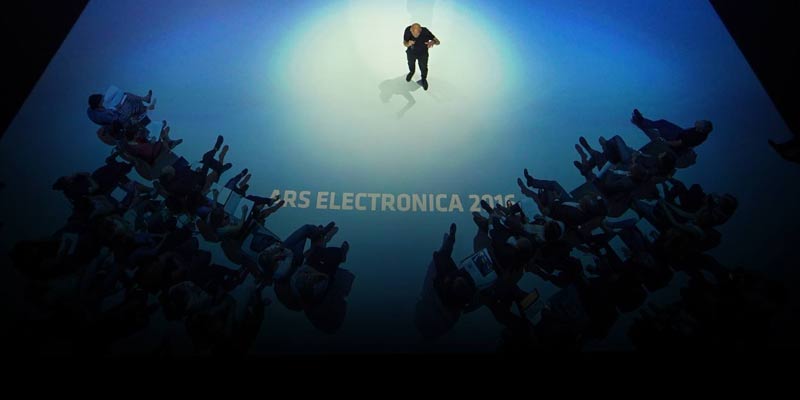Austrian CanSat Competition 2019:
Team of HTL Rennweg represents Austria at EM in Bologna
Pressetextt als PDF
photo album CanSat Competition 2019
Video CanSat Competition 2019
(Linz/Schärding, May 1, 2019) Stefan Galavics, Simon Köfinger, Peter Leithner, Alexander Traxler and Moritz Wallner are the winners of the nationwide CanSat competition 2019. Together they form the CanSat team of HTL Rennweg that successfully mastered all missions of the competition with their self-built satellite. The reward for their efforts is their participation in the CanSat European Championship, which will take place from 24 to 28 June 2019 in Bologna. Second place went to Maximilian Funk, Christoph Herl, Sebastian Dohnal and Benjamin Graffi from Team Cone. They can look forward to an exclusive factory tour at Vienna-based RUAG Space GmbH, Austria’s largest space supplier. The second Austrian CanSat competition to date was hosted by the Ars Electronica Center in Linz as the official European Space Education Resource Office Austria (ESERO Austria). The competition was supported by the Ministry of Space (bmvit), RUAG Space GmbH and the TU Space Team.
The CanSat Competition
CanSats are satellites the size of a beverage can. Depending on the requirements of their mission, they can be equipped with different sensors. Using a launcher, the minisatellites are shot spectacularly up to 450 meters high into the sky and then dropped. During the descent back to the ground, sensors measure temperature and air pressure and transmit these values to a ground station. Height and fall velocity are determined from the collected air pressure values, and a temperature profile is created from the temperature measurement data. The CanSats were built by students, each team consisting of a maximum of five members.
Simulation of a real space mission
To successfully complete a CanSat mission, teams must go through all phases of a real space mission: Planning the mission, constructing the satellite, testing the individual components and the overall system and, last but not least, carrying out the mission under real conditions. The final step is the preparation and evaluation of the data and the presentation of the results. Throughout the entire mission, not only the technical skills of each individual are required, but also soft skills such as teamwork and interdisciplinary thinking are trained.
Ars Electronica Center Linz is ESERO Austria
Since June 2016, the Ars Electronica Center has been the Austrian „European Space Education Resource Office,“ or ESERO for short. Several institutions applied for the location of the Austrian European Space Education Resource Office, and the Linz-based Ars Electronica Center was awarded the contract. The extensive educational programs developed here over the years for students of all school levels and the close contacts to various representatives of the Austrian education system were the decisive factors: „ESERO can be perfectly embedded in these structures,“ ESA explained its decision. Since then, targeted teacher training courses and special teaching materials have been used to convey the fascination with the subject of space and to get young girls and boys excited about science and technology. ESERO Austria is supported by ESA and the BMVIT/FFG.
http://www.flickr.com/photos/arselectronica/40739028943/
Team HTL Rennweg / Fotocredit: Ars Electronica / Martin Hieslmair / Printversion / Album
http://www.flickr.com/photos/arselectronica/32762201377/
CanSat Competition 2019 / Fotocredit: Ars Electronica / Martin Hieslmair / Printversion / Album
http://www.flickr.com/photos/arselectronica/47705428291/
CanSat Competition 2019 / Fotocredit: Ars Electronica / Martin Hieslmair / Printversion / Album

